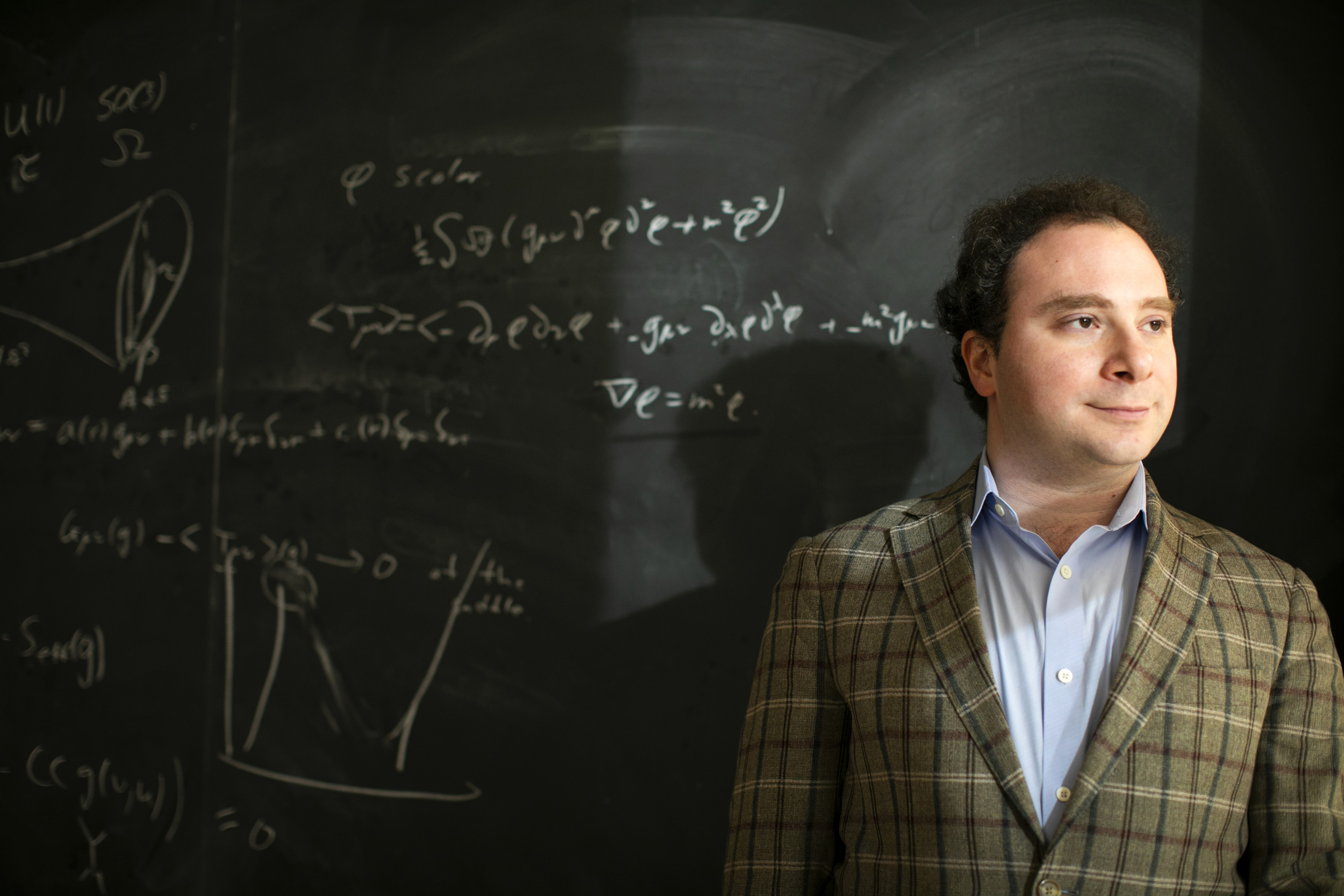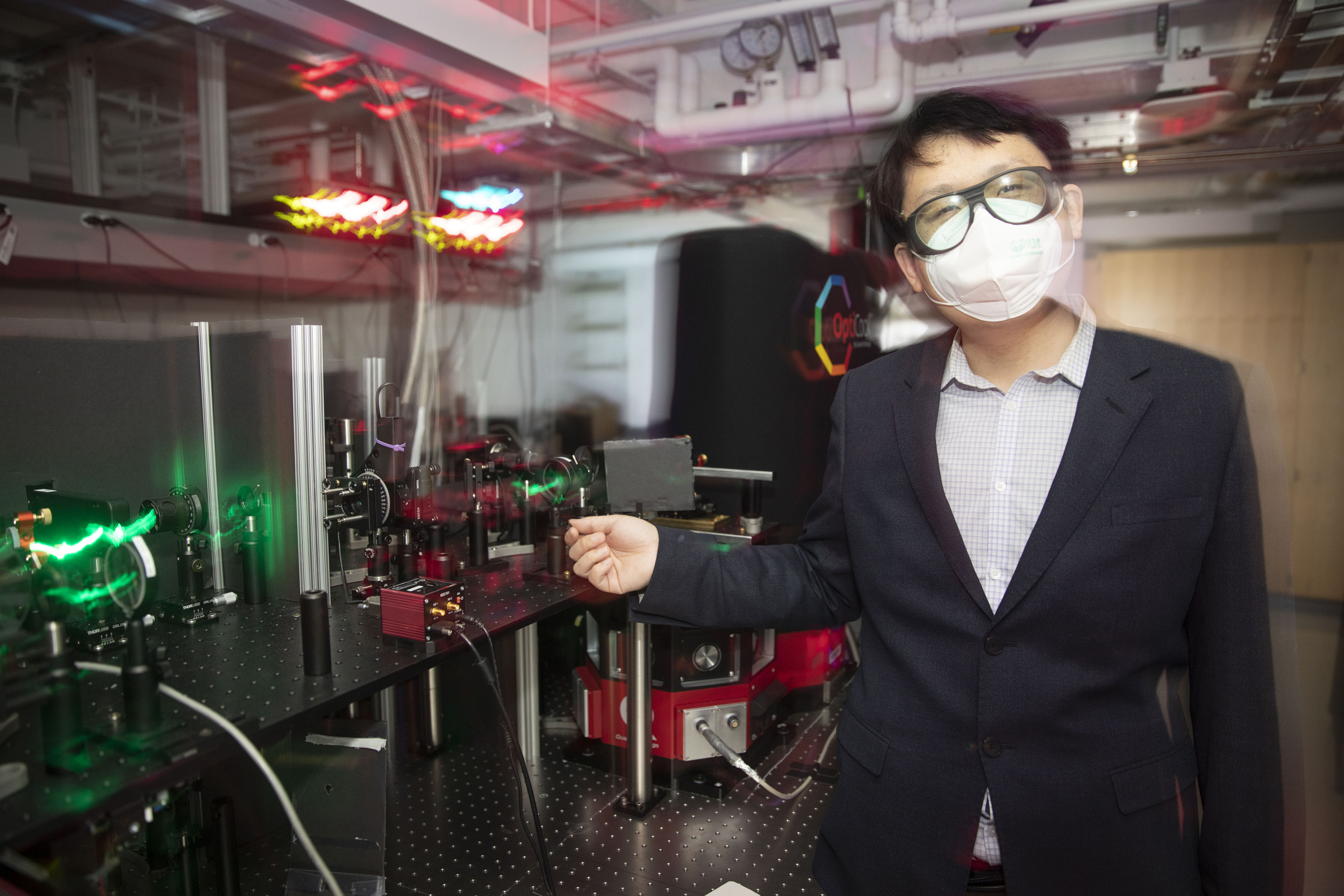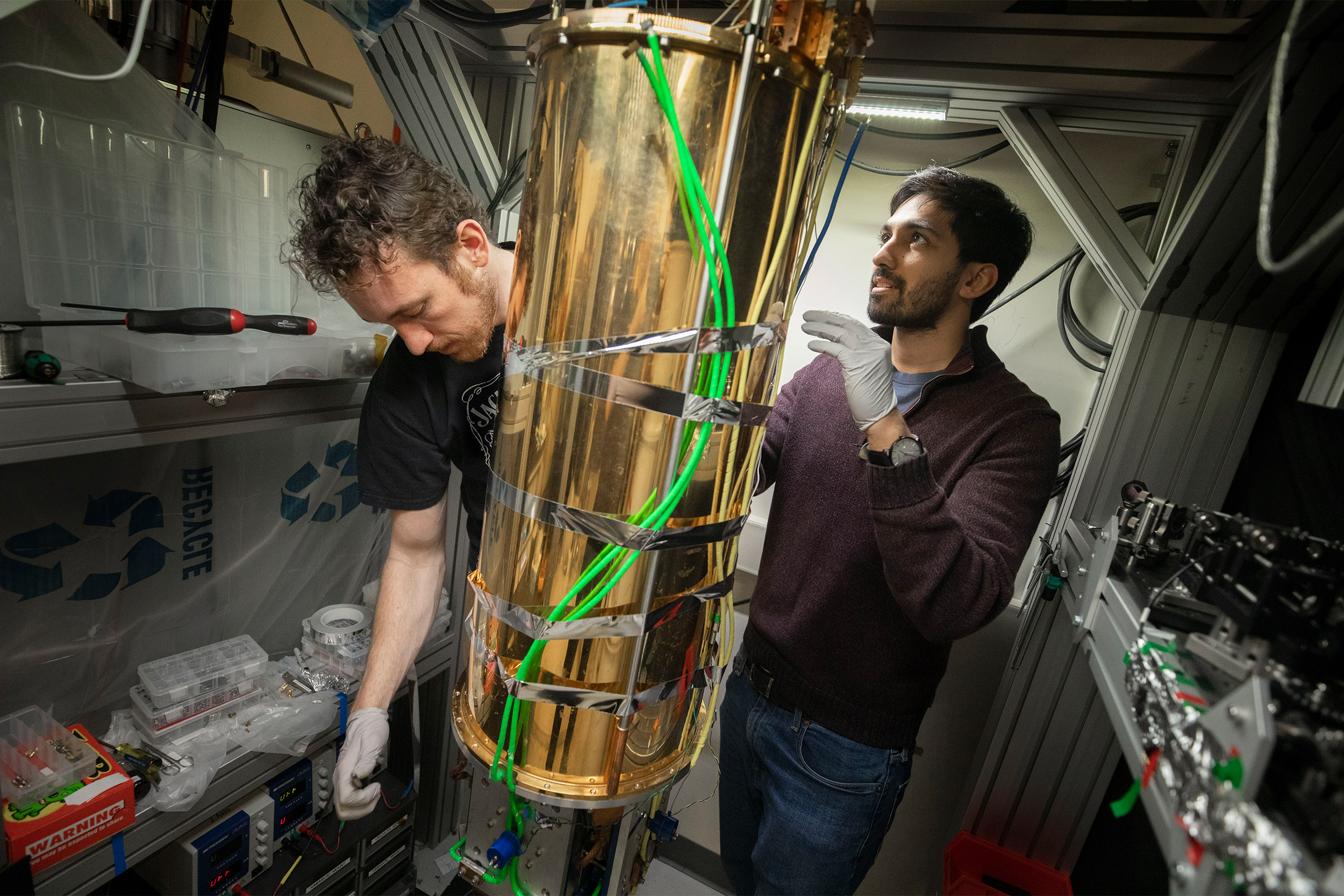Computers
Computers
From designing America’s first programmable computer to creating the world’s first logical quantum processor, Harvard scholars have always pushed the limits of computer science.
Harvard’s online course “Introduction to Computer Science” is free for anyone to take.
The early years
Explore the major role Harvard played in the early advancement of computer science.
Computers before computers
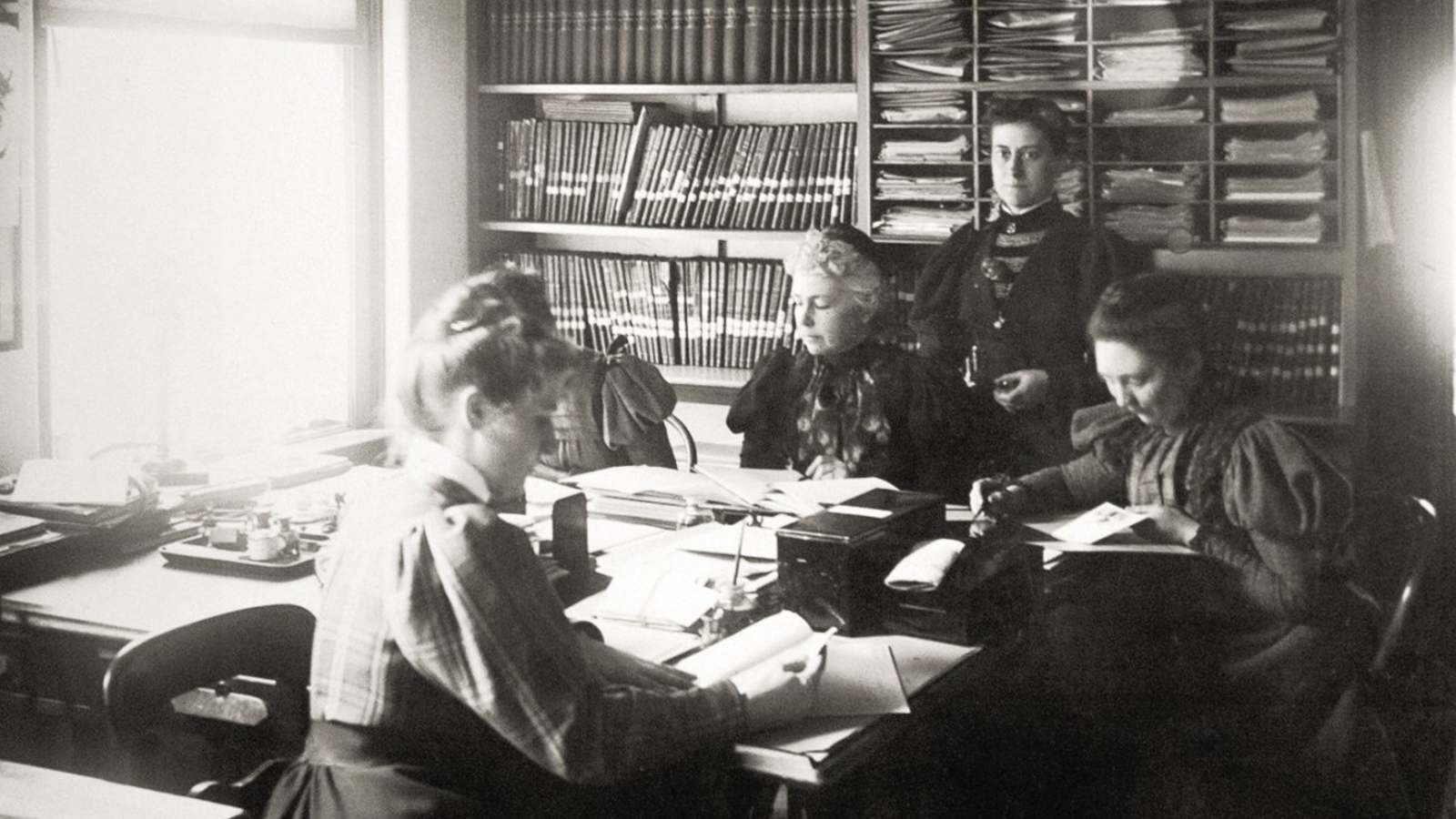
In the late 1800s, Harvard hired Women Astronomical Computers to study Harvard College Observatory’s findings. They discovered variable stars, studied stellar spectra, and counted galaxies. Several became famous astronomers in their day, including Henrietta Swan Leavitt.
Harvard Mark I
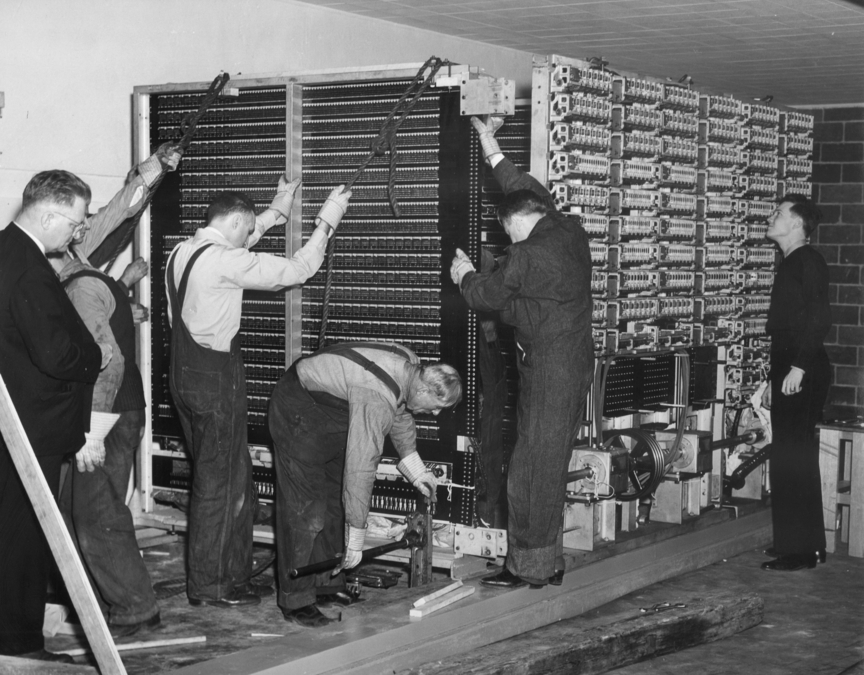
Consisting of 765,299 parts and 530 miles of cable, the Mark I was the first programmable computer in the United States and, in 1944, easily the most complex electromechanical device ever constructed.
Grace Hopper
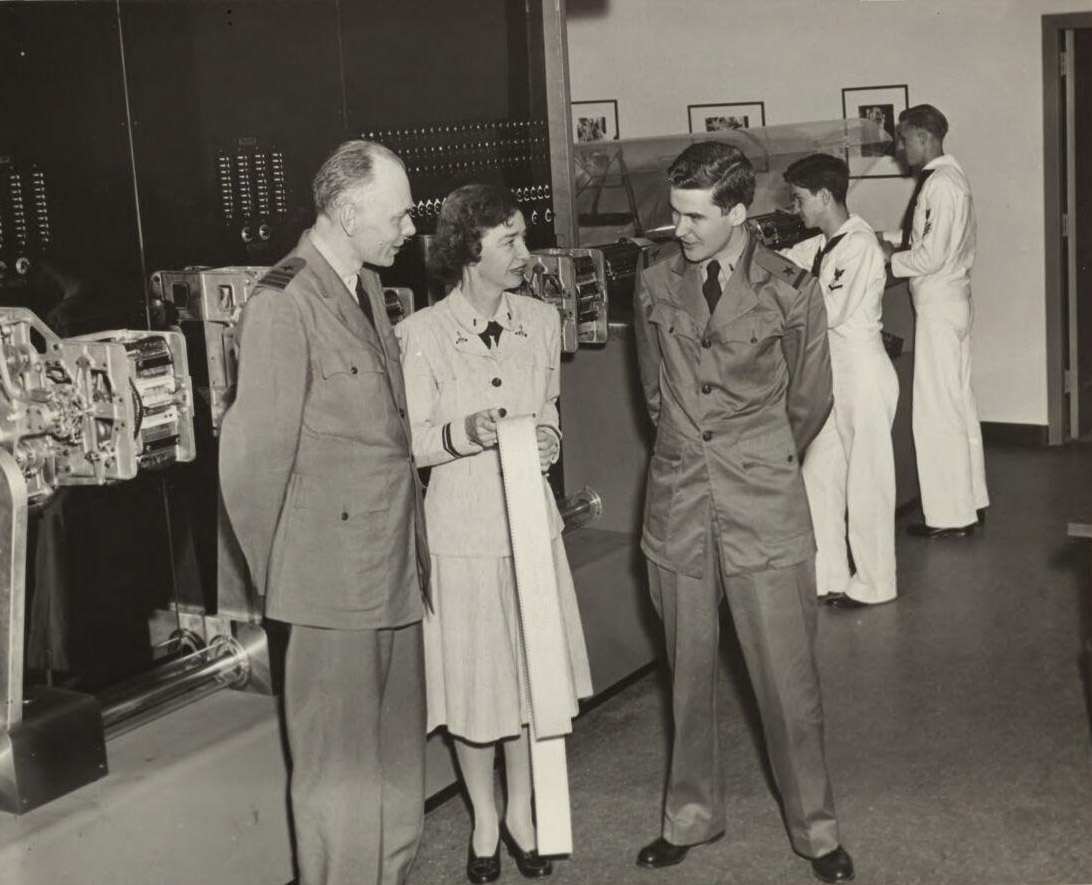
Using the Mark I, Grace Hopper was tasked with writing the world’s first computer programming manual. Some of the programming practices that she developed were subroutines (chunks of code that are stored and called upon when needed) and compilers (for translating source code into the machine language used by different computer processors) which are still used today.
Ivan Sutherland
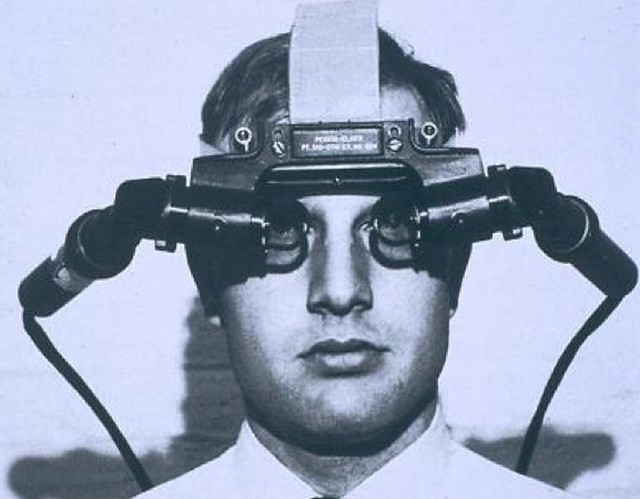
Associate professor of electrical engineering Ivan Sutherland—widely considered the father of computer graphics—invented one of the earliest virtual reality headsets with his graduate student Bob Sproull. Ivan went on to teach and mentor the likes of Edwin Catmull (co-founder of Pixar), James Clark (Silicon Graphics), and John Warnock (Adobe Systems).
Interface Message Processor
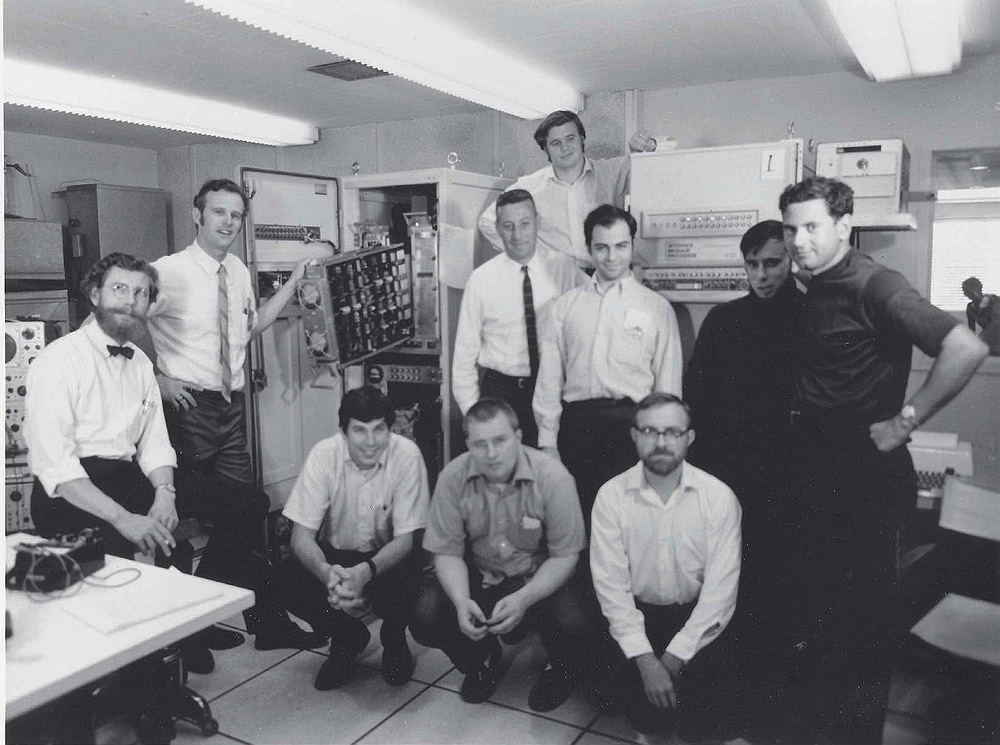
Many Harvard students, along with College radio station WHRB engineers, worked on the IMP, an electronic switching device that would connect computers to form the ARPAnet, the precursor to today’s internet.
TCP/IP protocol
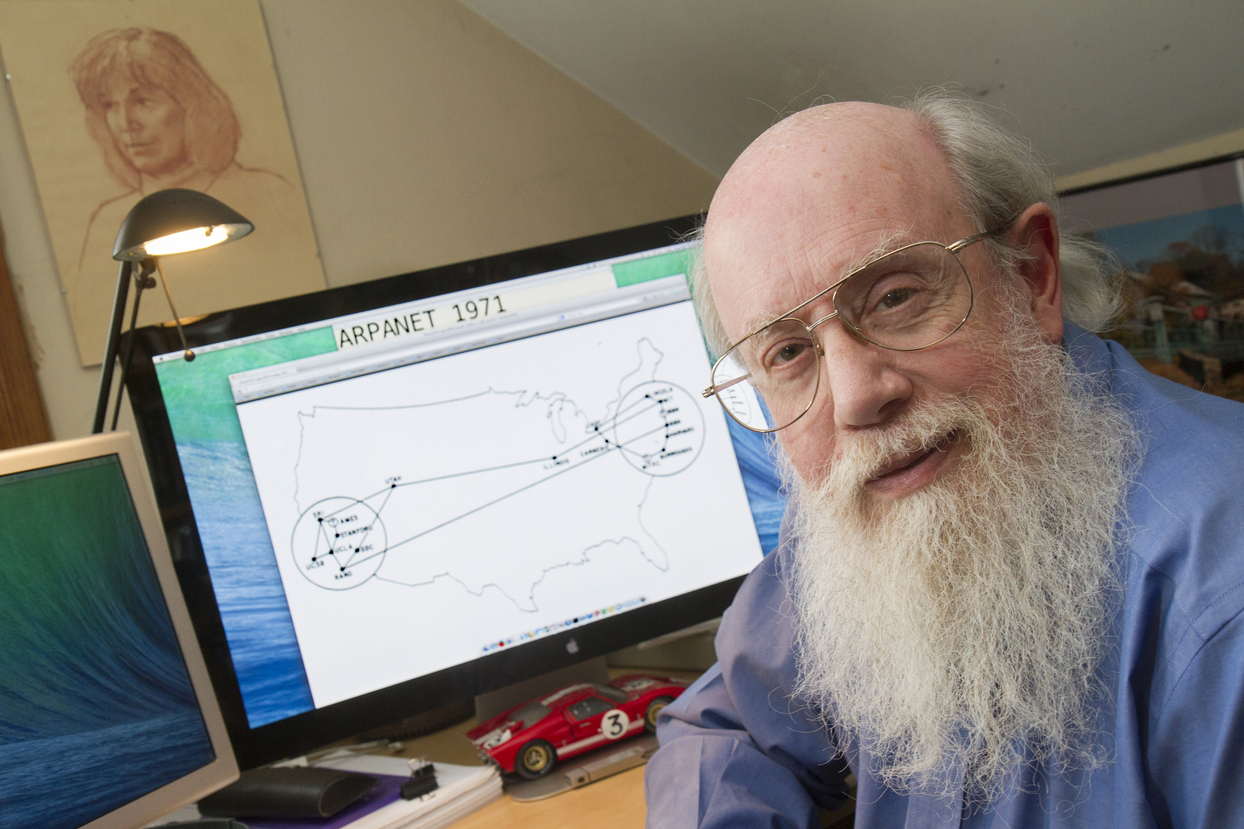
Scott Bradner—a senior technology consultant with Harvard—remembered the rollout of the TCP/IP protocol which allowed computer networks at Harvard to talk to computer networks at Stanford, and is still used to govern the modern internet.

How did the Mark I computer change the way we think about science?
Incoming Assistant Professor Marc Aidinoff explores the history of the Mark I computer and why it was such a milestone in computer science.
What’s currently computing
With so much of daily life moving online, Harvard scholars are exploring the benefits and concerns around smartphones, social media, and the internet.

The computers in our pockets
Smartphones are technological marvels, but they can also be addictive, distracting, and potentially dangerous. Harvard researchers are exploring how these devices can interfere with everything from sleep to creativity, when it’s appropriate to give children cellphones, and if phones should be allowed in school.
Explore the relationship between smartphones and the fall of Kodak

The worldwide web we weave
As the internet increasingly installs itself into our lives, many worry about the risk factors that come along with that. Cynthia Dwork made huge advancements in the field of data privacy, but there is more work to do. The Harvard community is exploring how data breaches and the selling of personal data could be countered with solutions like better and different regulation.
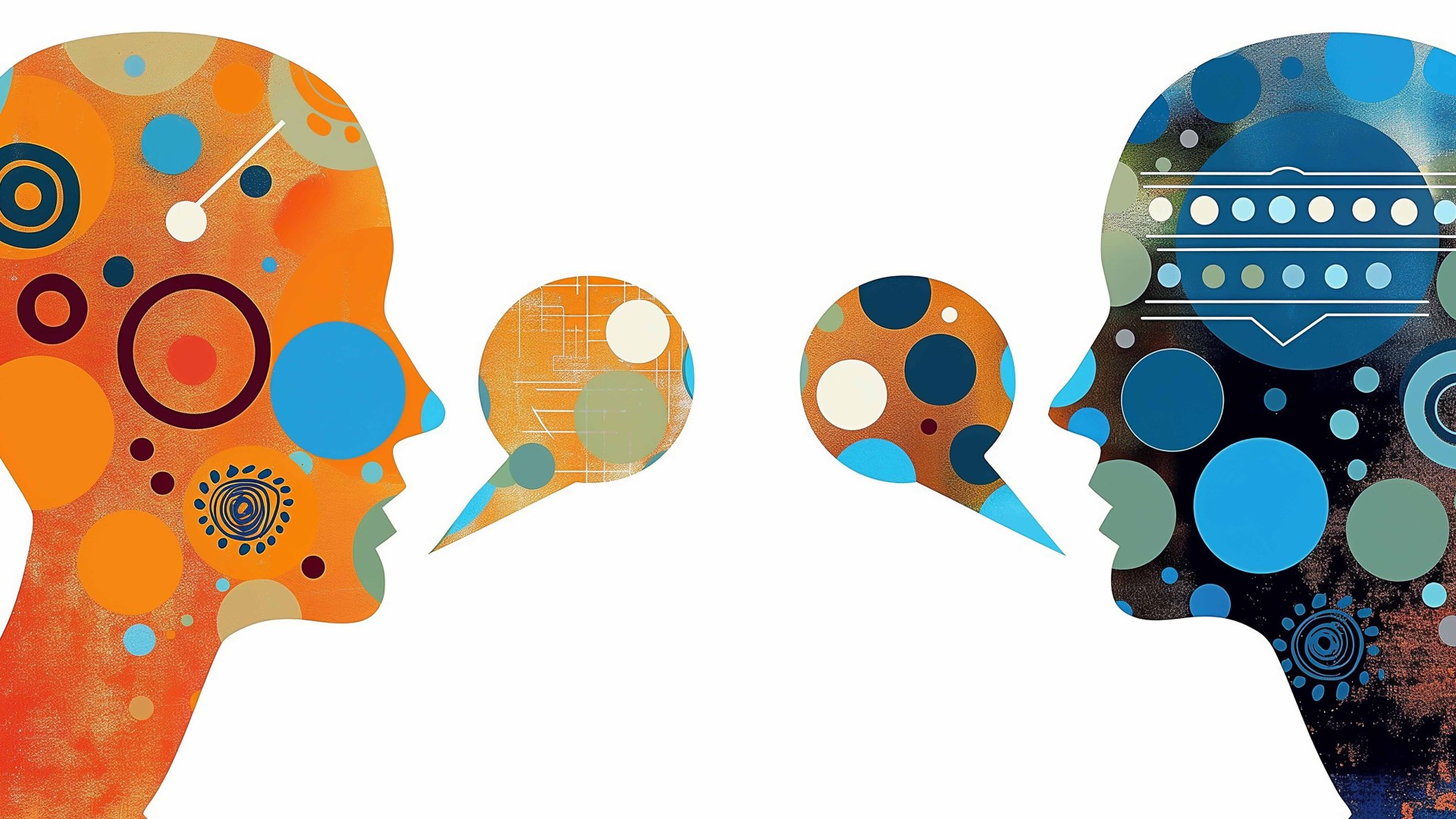
Reassessing social media’s impact on youth
Social media platforms generate billions in annual ad revenue from young people, while not providing transparency on the impact their algorithms have on the mental health and wellbeing of youth. With research showing that social media can negatively affect the health and wellbeing of teens, former U.S. Surgeon General Vivek Murthy has said it’s time for government and private industry to step up and reduce the mental health risks of social media for young people. Harvard scholars have laid out a framework for how to hold social media platforms accountable.
Where the future could go
How will artificial intelligence and quantum computing change the way we understand and interact with the world?
Artificial intelligence gets real

A lawyer, a computer scientist, and a statistician walk into an AI debate
These experts from the Harvard community talk about AI risks, benefits, and everything in between.
A lawyer, a computer scientist, and a statistician walk into an AI debate- Scholarship
How are technologies like AI changing academia?
- Theology
Does artificial intelligence have a place in religion?
- Literary studies
Is writing with technological assistance actually new?
- Medicine
Can AI find ways to repurpose existing drugs to treat rare diseases?
- Creative arts
What is the value of art created by artificial intelligence?
- Energy
How can we prepare for AI's demands on the grid?
- Oral Health
How do we tackle algorithmic bias in dentistry?
You may also like





